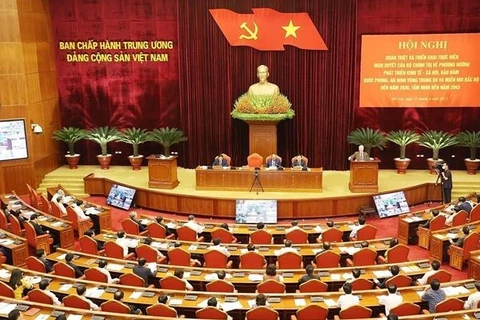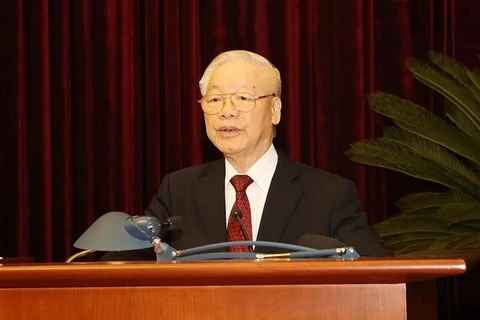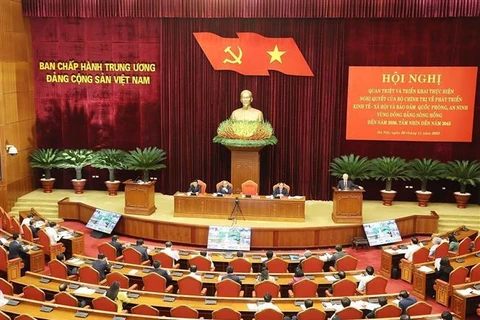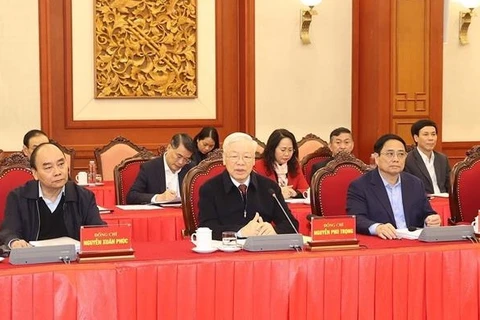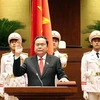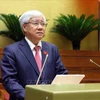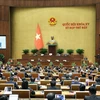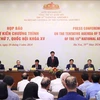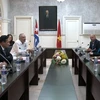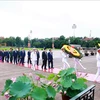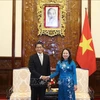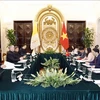Hanoi (VNA) – Prime Minister Pham Minh Chinh has signed decisions on the establishment of the coordinating councils for the northern and coastal central region, the southeastern region, the Red River Delta region, and the Central Highlands region.
They are inter-sectoral bodies helping the PM with considering, directing, coordinating, and handling important and inter-sectoral issues on the connectivity and sustainable development of the four regions.
According to the decisions, the PM acts as the chairperson of the coordinating councils for the southeastern and Red River Delta regions, while Deputy PM Tran Hong Ha chairs the coordinating council for the northern and coastal central region, and Deputy PM Tran Luu Quang leads the coordinating council for the Central Highlands.
The councils are tasked with researching and advising the PM about orientations, solutions, mechanisms, and policies for implementing the targets and tasks set in the Politburo’s resolutions on socio-economic development and defence - security safeguarding for the four regions. They also assist the Government leader in directing, promoting, and guiding the implementation of targets, tasks, programmes, projects, and activities of regional connectivity to ensure consistency, efficiency, and compliance with legal rules and approved plans.
The councils coordinate the building, amendment, and implementation of the National Master Plan, the four regional plans, and the plans of localities in the regions for 2021 - 2030, with a vision to 2050.
They also consider and propose regulations, mechanisms, and policies on regional development and connectivity; organise investment promotion, resource mobilisation, and investment attraction activities; coordinate the use of public investment to attract non-state investment (foreign direct investment and capital from businesses and the private sector); and facilitate investments in the form the public - private partnership (PPP) to develop strategic, urgent, and important infrastructure facilities of the regions.
Besides, the councils coordinate activities for developing socio-economic infrastructure, with priority given to transport infrastructure; consider setting up regional infrastructure development funds; helping localities in the regions deal with inter-locality issues; and work with other regions in socio-economic development issues concerning different regions./.
They are inter-sectoral bodies helping the PM with considering, directing, coordinating, and handling important and inter-sectoral issues on the connectivity and sustainable development of the four regions.
According to the decisions, the PM acts as the chairperson of the coordinating councils for the southeastern and Red River Delta regions, while Deputy PM Tran Hong Ha chairs the coordinating council for the northern and coastal central region, and Deputy PM Tran Luu Quang leads the coordinating council for the Central Highlands.
The councils are tasked with researching and advising the PM about orientations, solutions, mechanisms, and policies for implementing the targets and tasks set in the Politburo’s resolutions on socio-economic development and defence - security safeguarding for the four regions. They also assist the Government leader in directing, promoting, and guiding the implementation of targets, tasks, programmes, projects, and activities of regional connectivity to ensure consistency, efficiency, and compliance with legal rules and approved plans.
The councils coordinate the building, amendment, and implementation of the National Master Plan, the four regional plans, and the plans of localities in the regions for 2021 - 2030, with a vision to 2050.
They also consider and propose regulations, mechanisms, and policies on regional development and connectivity; organise investment promotion, resource mobilisation, and investment attraction activities; coordinate the use of public investment to attract non-state investment (foreign direct investment and capital from businesses and the private sector); and facilitate investments in the form the public - private partnership (PPP) to develop strategic, urgent, and important infrastructure facilities of the regions.
Besides, the councils coordinate activities for developing socio-economic infrastructure, with priority given to transport infrastructure; consider setting up regional infrastructure development funds; helping localities in the regions deal with inter-locality issues; and work with other regions in socio-economic development issues concerning different regions./.
VNA


